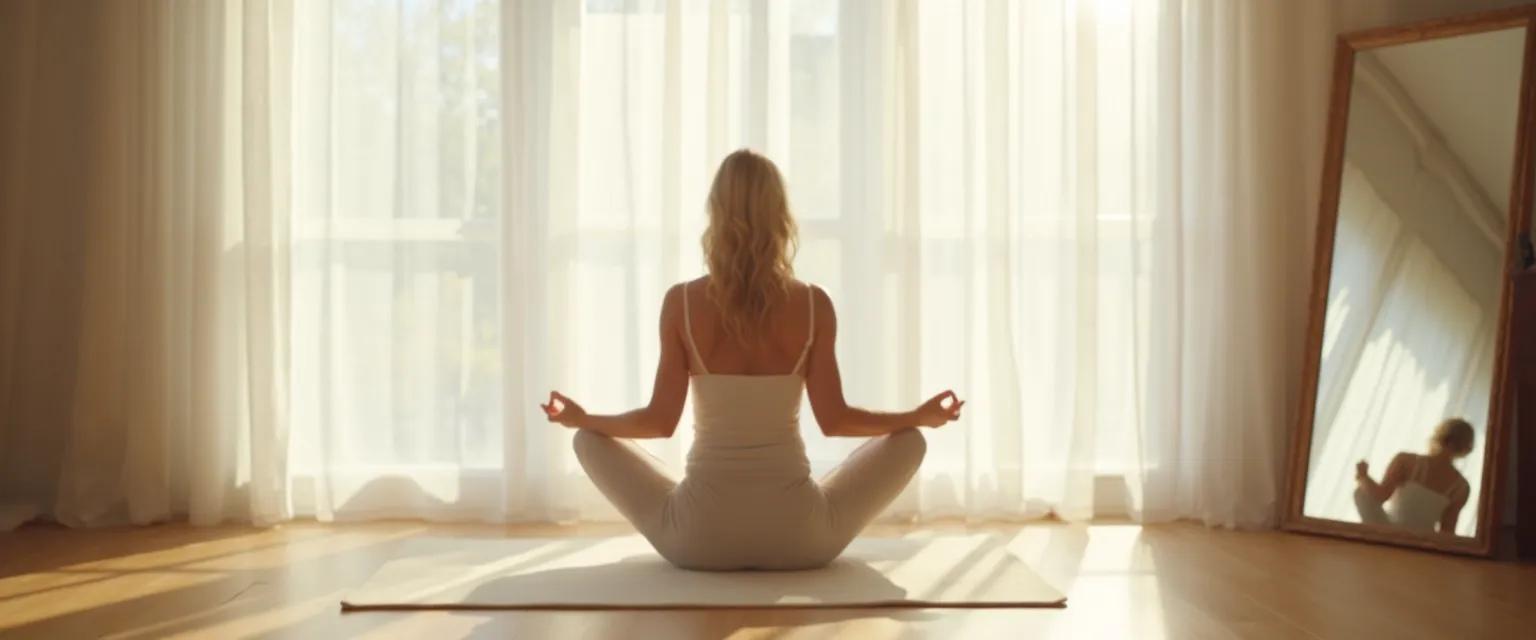Mirror Moments: 5 Daily Practices When Self-Awareness Is a Key to Self-Mastery
Ever caught yourself thinking, "I know I should respond differently, but I just can't seem to stop reacting this way"? That gap between knowing and doing highlights why self-awareness is a key to self-mastery. When we truly see ourselves—our triggers, patterns, and automatic responses—we gain the power to transform them. Think of self-awareness as the foundation upon which all personal growth is built; without it, we're simply running on autopilot.
Neuroscience confirms what ancient philosophers have known for centuries: self-awareness is a key to self-mastery in both personal fulfillment and professional success. A fascinating Harvard Business Review study found that leaders with high self-awareness were not only rated as more effective by their colleagues but also delivered better financial performance. The good news? Self-awareness isn't something you're born with—it's a skill you can develop through consistent practice.
The five daily "mirror moments" I'm about to share aren't time-consuming or complicated. They're simple practices that, when implemented consistently, create compound growth in your emotional intelligence capabilities. These small daily investments pay massive dividends in your ability to respond rather than react, choose rather than default, and ultimately master your emotional landscape.
The First 3 Mirror Moments: How Self-Awareness Is A Key To Self-Mastery
Let's explore the first three practices that demonstrate why self-awareness is a key to self-mastery in everyday life:
1. Morning Intention Setting
Start your day with a two-minute practice of setting an emotional intention. Rather than jumping straight into your to-do list, pause and ask: "How do I want to feel today?" and "What quality do I want to embody?" This simple mirror moment creates a reference point that you can return to throughout the day, especially when challenges arise. Research shows that this kind of intentional focus activates your brain's executive function, priming you for more thoughtful responses rather than reactive behaviors.
2. Mid-day Emotional Check-ins
Three times daily—perhaps before meals—take 30 seconds to notice your emotional state. Label what you're feeling without judgment. Are you anxious? Frustrated? Energized? This regular practice builds your emotional vocabulary and helps you spot patterns in your emotional responses. Many people are surprised to discover how their emotions fluctuate throughout the day in predictable patterns, offering valuable insights for self-mastery.
3. Mindful Body Scanning
Your body offers constant feedback about your emotional state if you learn to listen. When facing a stressful situation, take a moment to scan your physical sensations: Is your jaw tight? Shoulders tense? Breathing shallow? These physical cues often precede emotional reactions, giving you a crucial early warning system. By recognizing these signals, you create space between stimulus and response—the essence of why self-awareness is a key to self-mastery.
2 Advanced Self-Awareness Practices for Deeper Self-Mastery
Once you've established the foundation with the first three practices, these two advanced mirror moments take your self-awareness to the next level:
4. The Pause and Reflect Technique
When you notice yourself about to react emotionally, implement the pause technique: take a deep breath and ask, "What's really happening here?" This creates critical space between trigger and response. Neuroscience shows that even a three-second pause activates your prefrontal cortex (the rational brain) rather than your amygdala (the emotional brain). This simple practice demonstrates how self-awareness is a key to self-mastery in high-pressure situations.
Make this easier by identifying your personal emotional triggers in advance. Do certain comments from specific people always set you off? Does a particular work situation consistently cause anxiety? Knowing your triggers transforms them from hidden traps into signposts for growth.
5. Evening Reflection Practice
End each day with a three-minute reflection on moments when you responded well versus times you wish you'd responded differently. Ask yourself: "What supported my best responses today?" and "What would help me respond better tomorrow?" This reflection practice reinforces neural pathways for improvement without judgment.
The key to making these mirror moments effective is consistency, not perfection. Missing a day isn't failure—it's just part of the process. Remember that self-awareness is a key to self-mastery because it transforms unconscious patterns into conscious choices. Each time you notice a reaction, acknowledge an emotion, or pause before responding, you're strengthening your self-mastery muscles.
Start with just one of these practices today. Notice how even this small step begins to shift your relationship with your emotions and responses. Over time, these mirror moments build upon each other, creating a powerful foundation for lasting change. After all, self-awareness is a key to self-mastery not because it's complicated, but because it's fundamental to everything else.




